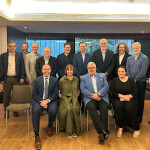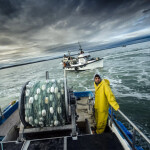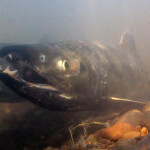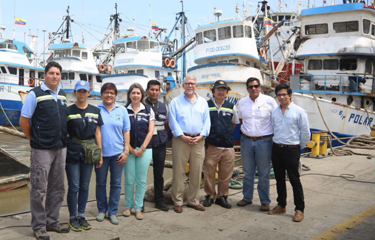The Ecuador Small Pelagics Sustainability Fishery Improvement Project has resulted in marked improvements in the stock status of six small pelagic species since it was established, according to an update provided by the Sustainable Fisheries Partnership (SFP), which helped to create the FIP two years ago.
The fishery is the second largest in Ecuador by volume terms, with an industrial fleet of 267 vessels landing an estimated annual catch of of 278,000 metric tons, used to produce canned fish, frozen fish, and marine ingredients including fishmeal and fish oil. The fishery collectively supports around 25,000 jobs.
According to 2019 data, voluntary management measures have resulted in all of the stocks no longer being subject to overfishing, and in two of the six target species ridding themselves of their overexploited status. In 2017, three of the stocks were listed as being overfished, and all six were classified as overexploited.
The industry-led FIP has also increased the number of days the fisheries are closed from 61 in 2017 to 80 days in 2020, establishing a seven-day closure around each full moon.
“This FIP represents our desire to ensure a supply of fish for many future generations, and to work in an environment of respect for law and nature. This journey has been complicated and the economic environment has been challenging, with low captures in the last few years and the pandemic. Despite this, milestones have been reached and the state of the fishery has improved,” Pesquera Polar Manager and Vice President and Ecuador’s National Chamber of Fisheries Small Pelagic Commission President Carlos Cacao said in a press release. “The improvements that the FIP has generated are steps that have been taken little by little, but with the security that they are significant for the small pelagics of the country. Now we have to ensure that these achievements and improvements continue over time. This is the beginning of a promising future.”
The success of these measures highlights the importance of furthering co-management and collaboration in countries where fisheries law enforcement is weak, according to SFP, which continues to provide technical advice to the FIP, including support for research to improve stock assessments and evaluate the fishery’s environmental impacts. The data is being used to develop a Small Pelagic Fishery Action and Management Plan, which is expected to further strengthen the rebuilding of small pelagic stocks in the region, SFP said.
The FIP has been organized and financed by a coalition of aquaculture feed producers and fishmeal processors in Ecuador’s National Chamber of Fisheries, and has been supported by the UNDP/Global Marine Commodities (GMC) project. The FIP’s goal is to achieve sustainability of the fishery to meet sustainable marine ingredients certification standards.
The FIP is now using a bespoke Sustainable Marine Commodity Platform for its governance system. The SMCP is an “intersectoral decision-making platform that includes government authorities, private sector actors, fishers, processors, and scientists,” according to SFP.
"The Small Pelagic Sustainable Marine Commodity Platform reflects the commitment of all the supply chain actors to reach agreement to strengthen the governance of the Ecuadorian small pelagic fishery,” Ecuadorian Vice Minister of Aquaculture and Fisheries Andrés Arens said. “This new multi-stakeholder and participatory governance model represents an important milestone for the Ecuadorian fishery sector, since it is the first time that representatives from the entire value chain of a fishery are sitting together to analyze a management plan that will contribute to seafood sustainability. Ecuador is demonstrating that structured processes that empower and promote public-private partnerships contribute to strengthening participatory governance that helps to improve fisheries and supply chain sustainability."
Photo courtesy of Cámara Nacional de Pesquería de Ecuador







